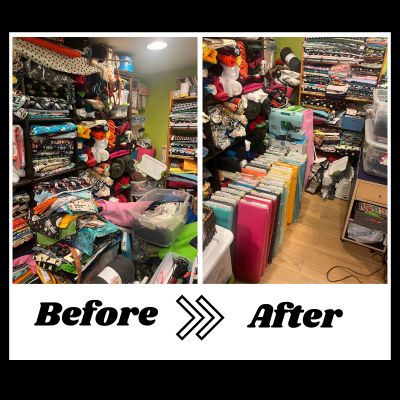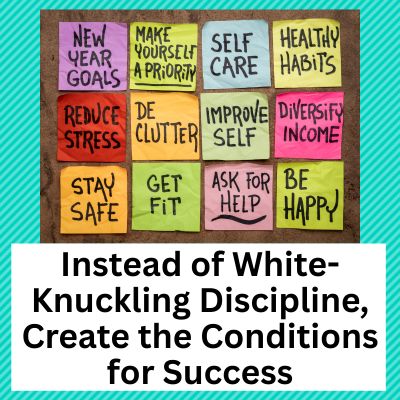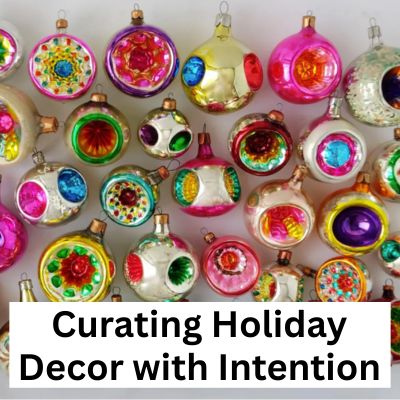Alcoholism, Isolation, Grief, and Home Organization

Today is the three year anniversary of my dad’s death. Although he was a fairly successful Washington, DC lawyer, he struggled with a dependency on alcohol for at least as long as I knew him. Alcoholism runs on both sides of my family, and because of that, I am grateful that I don’t have a compulsion to drink alcohol myself. Yet as everyone knows, alcoholism effects everyone in the family. I am very grateful for the lessons that I have learned through growing up in my family.
Alcoholism is known to be the Disease of Connection, or the Disease of Isolation, depending on which way you are looking at it. Addicts deeply want to connect with others, yet they often aren’t able to establish healthy and meaningful emotional bonds. Due to the global pandemic, our entire world has been forced to confront our connection with others. For some who live alone, the sense of isolation from others could be just peachy, or it could be bringing a lot of grief to the surface. For those who live with others, you may have filled your life with “being busy” to avoid confronting the fact that there may be some serious conflicts going on with the people you live with. But I’ve also been hearing and seeing some really lovely things about friends connecting, reaching out, being present, having meaningful conversations, and really enjoying each other’s company. But for everyone, the isolation has probably put a magnifying glass on your identity. What do you do when you are in isolation? Do you anesthetize yourself with compulsive behavior, or are you able to cultivate presence and empathy for yourself? I know I do my fair share of eating chocolate and scrolling through my phone, but I am also making the most of this time by engaging in creative projects, physical fitness, and personal development.
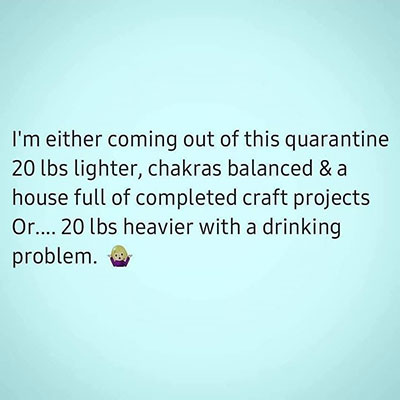
Image reposted from Facebook.
With the entire world experiencing grief, in one way or another, it’s almost like a huge window has been opened, to allow for people to do some healthy grief releasing work. Several years ago, right before I even knew my dad was going to die, I met a woman named Rhonda Frachiseur, who is a Grief Recovery Specialist. She recommended a book called The Grief Recovery Handbook. In this book, they identify the following myths about dealing with loss:
- Don’t feel bad.
- Replace the loss.
- Grieve alone.
- Just give it time.
- Be strong for others.
- Keep busy.
As a Professional Home Organizer, my main job is not actually to help people organize their homes. It’s about helping them process grief. Each of these false ways of processing grief lends itself to more clutter and confusion. I’ll show you why.
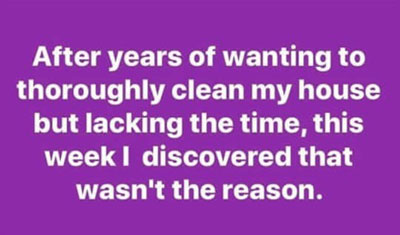
Image reposted from Facebook.
- Don’t feel bad. The thought process goes like this: “But I do feel bad. But I’m not supposed to. So I deny my feelings and shame myself for having feelings that are anything less than positive. With this deep sense of shame, I can’t let anyone over to my home, because I’m too embarrassed of the mess. What mess? There’s no mess? Just don’t look in the closet, or the basement, or the attic, or under the bed.”
- Replace the loss. This may translate into compulsive shopping- never feeling satisfied with what you have, because the initial loss that you are trying to compensate for still has never been resolved. Your home may become cluttered with items that you purchased to try to solve the problem of feeling incomplete. This can also translate to codependency, or a compulsion to never be alone. If your mind is so tuned into stabilizing attachment with others, you may not feel secure enough to tend to your own needs. When that happens, you may not have the energy to do pick up after yourself, or engage in your own hobbies, because you have expended so much energy towards someone else.
- Grieve alone. If you are believing this, you probably don’t feel comfortable sharing the full spectrum of who you are, with a complete range of emotions. Have you ever experienced more feelings of loneliness when you are with others, in a social situation, especially one that is supposed to be “fun”, rather than when you are actually alone? The amount of mental and emotional labor required to navigate these situations can deplete your energy in no time. Then, when you get home, and you’re finally alone, all you want to do is recover from all the tending to other people’s emotions that you’ve been doing, rather than have the energy to keep your home organized and feeling alive.
- Just give it time. Yeah, no. However, it’s not just actively working on your grief either. Many people (including myself!) want to jump into the spiritual or the mental realms to come to an understanding. Instead of just creating an intellectual action plan to process grief (journaling, making plans with friends, exercising, etc.), and doing spiritual work (meditating, prayer, contemplating from a multi-dimensional perspective etc.), it’s important balance the spiritual and intellectual actions with simply just sitting with yourself and experiencing the full range of the grief. (This is much easier said than done!). While “just giving it time” certainly has its place if you are working on cultivating patience, or waiting for an avocado to ripen, it may also come off to your inner- self as dismissive. In your home, this will show up as piles of paper (we’ve all got them!), abandoned craft projects (I know from experience), and more. While we intellectually know that the laundry won’t do itself (wait, will it?), systems can be created in the home so that the seeds you’ve planted will get tended to, and can grow up into trees.
- Be Strong For Others. This is a lot like the first example, don’t feel bad. The desire to appear emotionally strong may get translated into physical strength as well. While physical strength is wonderful and something to praise, it can get taken to an unhealthy extreme. This could mean over-exercising (and not leaving enough time to tend to your clutter), but it may actually create an environment where there isn’t enough clutter. Believing you must be strong for others (despite how you really feel), may propagate a sense of over-disciplined rigidity, and foster an environment where you feel like you can never relax. It may also inspire you to fill your home with books and imagery that actually depict war and power struggles. If you haven’t purchased a copy of my coloring book, Color To Declutter, the main theme of the book is about how the items in our homes can be viewed as words. What messages are the objects in your home imprinting on you?
- Keep Busy. I have had so many conversations with people about how this pandemic has urged people to slow down (unless you’re a health care worker, grocery store clerk, delivery driver, or have been forced into overdrive for the greater of humanity (thank you!)). If have an internal need to avoid feeling pain by keeping busy, you will unconsciously fill your schedule (and to-do list) valid excuses for not being present with yourself, your loved ones, and your home. When you aren’t available to be present, you may forget what you have, or where you put it. You may buy a can of paint, when you already have two unopened containers at home. Or you may have worked on a project in the garage in such a rush that you had to just shove the tools back in a jumble. (I may or may not be speaking from experience here ;-)).
If you are experiencing unresolved grief in your home, you are not alone. This is universal. Grief morphs, changes, moves. New grief comes up. It is a continual cycle which will need to get tended to on a reoccurring basis. But by shifting the perspective from seeing piles of papers, a basement of boxes, and a garage of jumbled tools and thinking you are lazy, bad, and deserve to be shamed, see if you can have compassion for the piles, boxes and jumbles. See what it’s like to spend time with them (the piles, boxes and jumbles), almost as if you are sitting with a small child who is expressing their pain. An incredible amount of healing can happen through the process of decluttering. Decluttering includes a combination of action (physical and mental), spiritual allowing, understanding, cleansing, and repairing. But decluttering also encompasses the very necessary empathetic component to processing grief. Sitting with yourself (and possibly someone else) and experiencing these emotions as they come up, without judgement.
As a Professional Organizer, a big part of what I do is providing emotional support. Sometimes the work is more hands on, and emotional support is purely silent, or through indirect conversation about other topics. Many times, my clients just need someone to sit with them, free from judgement, as they sort through their boxes. I am now working with clients virtually, via FaceTime or Skype, with people all over the country. Virtual sessions have many benefits for my clients.
- You are not limited by distance.
- It’s more private- you control the spaces you want to show, vs. allowing me into your entire home.
- Virtual organizing requires more responsibility on your end. With that, you also receive increased skills. During these sessions, your brain activity will be heightened, which will create new neural pathways, so that sticking to new habits will become easier.
- Virtual organizing is more affordable than in-person sessions, because we can do a 1 hour session (vs. my normal 3 hour minimum).
I am offering an introductory 1-hour Virtual Organizing session for $75. Subscribe to the Seattle Sparkle newsletter and get an additional 20% off your first Virtual Organizing package. April is Alcohol Awareness Month, and I will do another blog post for Adult Children of Alcoholics. Stay tuned!
Please join our Facebook group, Declutter and Organize with Seattle Sparkle, and let us know if you need any support as you declutter.


